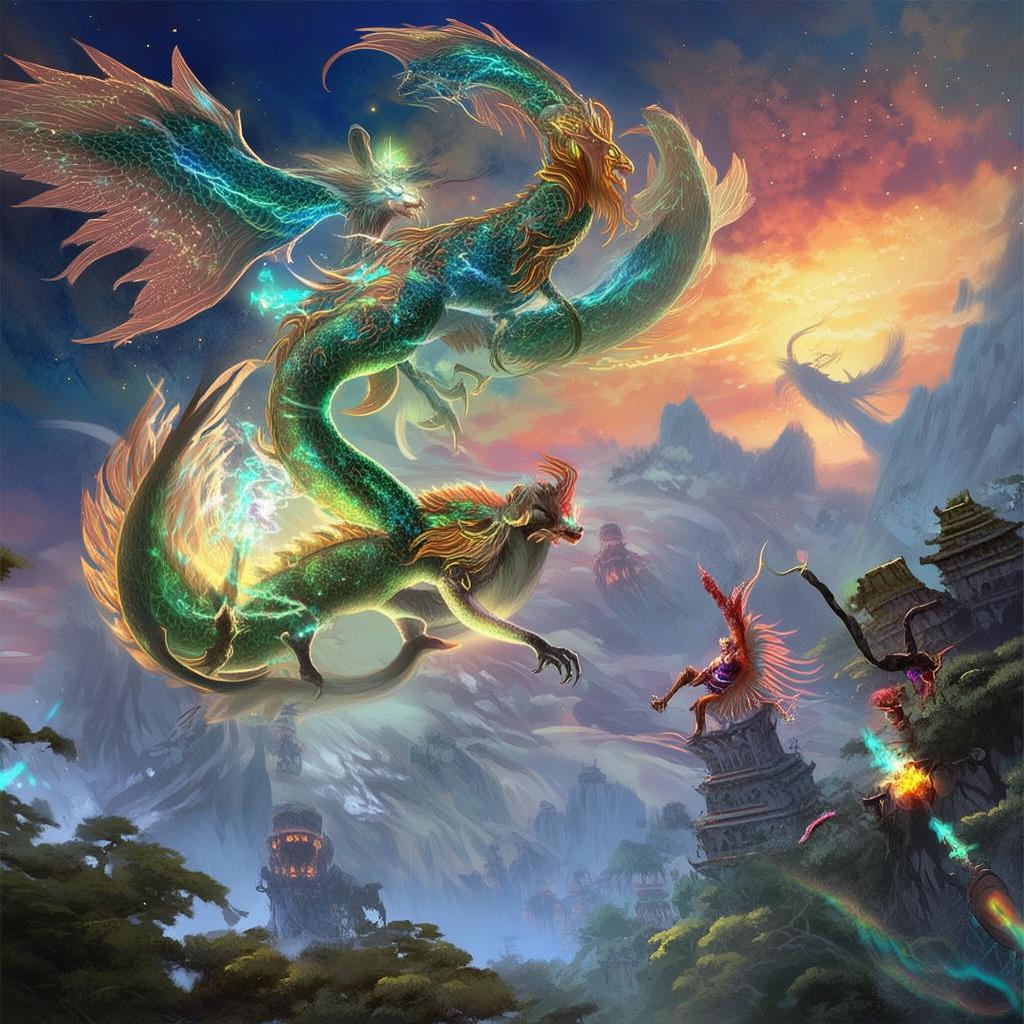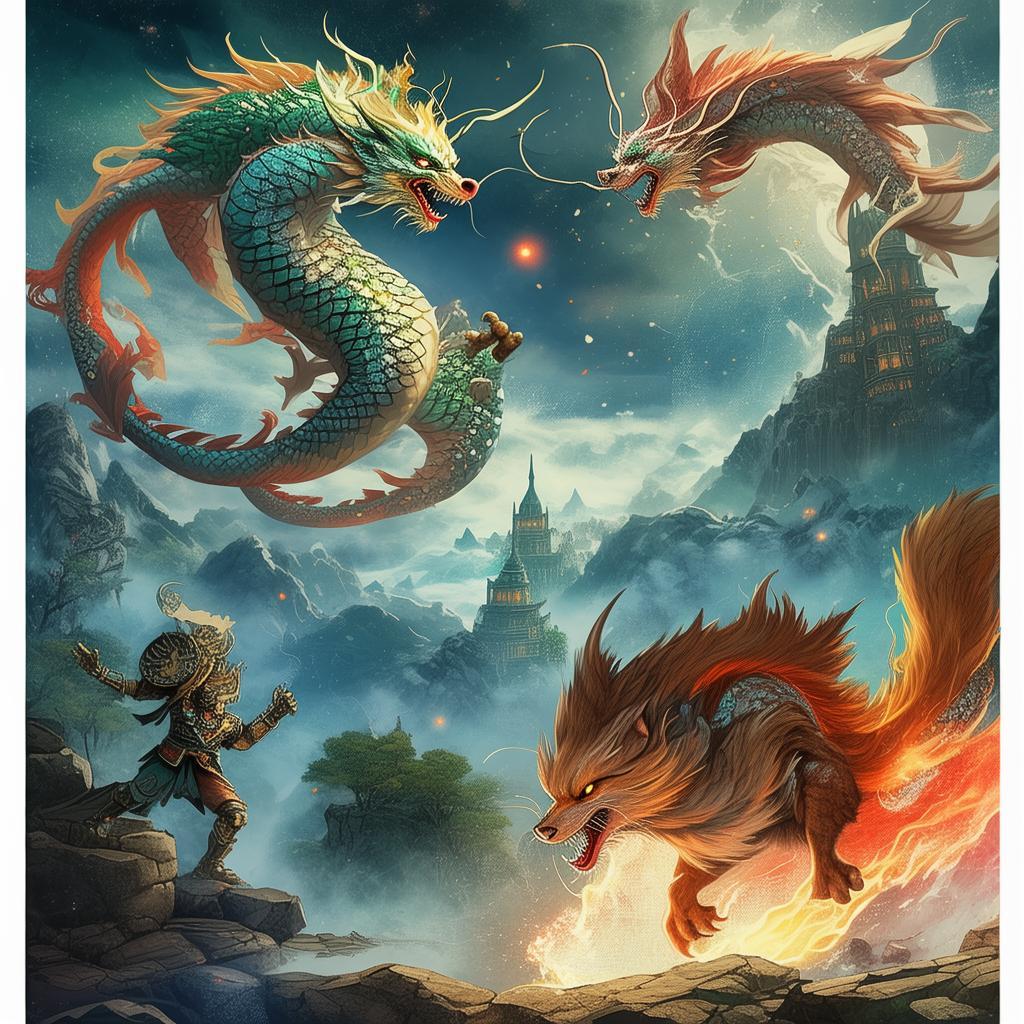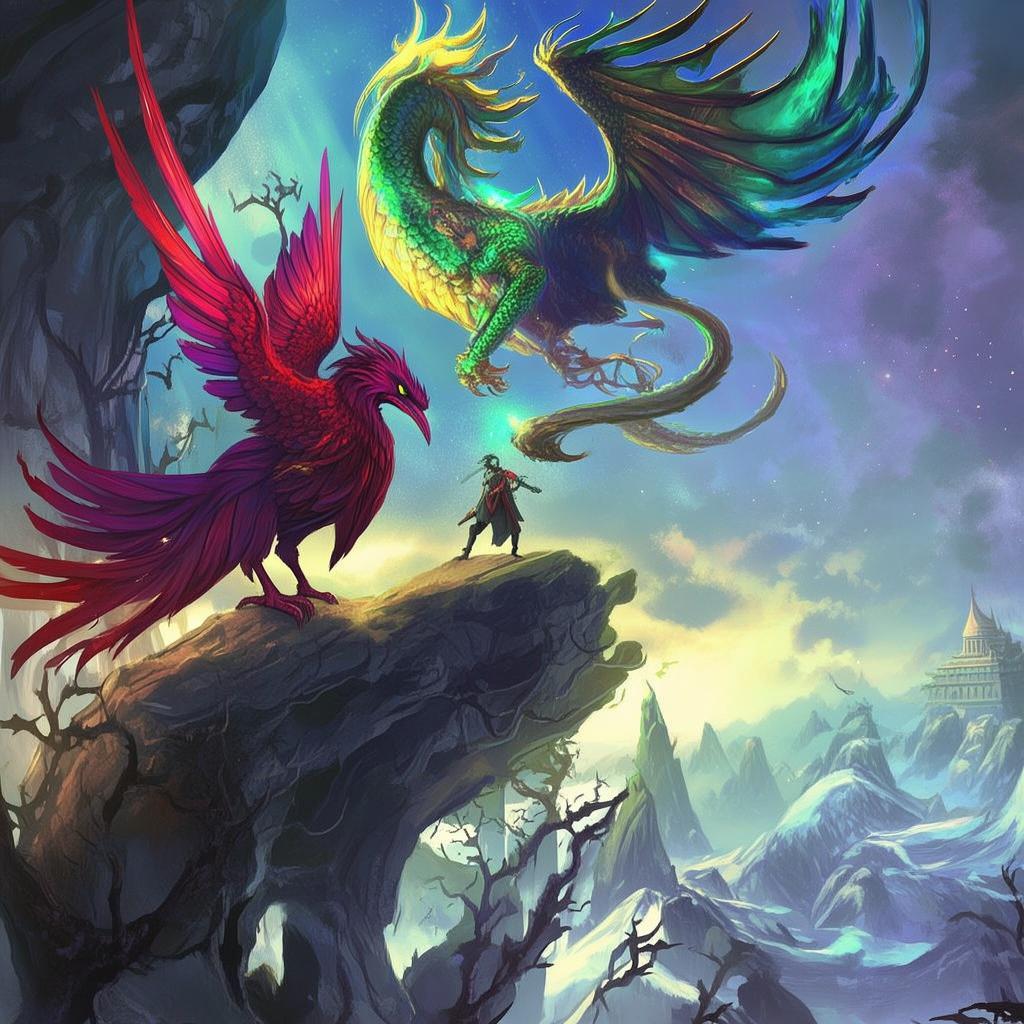The Echo of the Mountain: A Tale of the Shan Hai Jing's Idols
In the heart of the ancient Chinese empire, where the mountains whispered secrets and the rivers sang of ancient tales, there lay a forgotten scroll, the Shan Hai Jing, a tome of the mystical and the magical. It was said that within its pages resided the stories of divine icons, beings of power and wonder that had shaped the world long before the rise of empires and dynasties.
The young scholar, Li Zhen, had always been fascinated by the tales of the Shan Hai Jing. His father, a scholar of great repute, had once spoken of the scroll with reverence, but the man had never seen it. It was a legend, a mere whisper on the winds of time.
One day, while sorting through his father's library, Li Zhen stumbled upon an old, tattered copy of the Shan Hai Jing. Its pages were filled with strange symbols and cryptic texts, and as he delved deeper, he discovered that the scroll spoke of the divine icons, beings who had once walked the earth and left their mark on the landscape.
Li Zhen's heart raced with excitement and a sense of duty. He knew that his quest was not just a scholarly endeavor but a journey into the unknown. The divine icons, he learned, were not just mythical creatures; they were humanized deities, beings with flaws and virtues, whose stories were as complex as the world they had once inhabited.
With a heart full of curiosity and a mind brimming with questions, Li Zhen set out on a journey that would take him from the towering mountains to the deepest rivers, from the bustling cities to the most remote villages. He sought the wisdom of the elders, the guidance of the sages, and the courage of the warriors, for each was a piece of the puzzle he was trying to solve.

As he journeyed, Li Zhen encountered the divine icons, each one more fascinating than the last. There was the Mountain God, a majestic figure who ruled the peaks with an iron fist, yet who had a soft spot for the creatures that called his realm home. Then there was the River Goddess, a woman of grace and strength, who controlled the flow of the waters and the fertility of the land. And there was the Wind Spirit, a being of ethereal beauty and unpredictable nature, who could both soothe and destroy.
Each idol had a story, a tale of human weakness and divine power, of love and loss, of triumph and despair. Li Zhen listened intently, learning that the divine icons were not just figures of myth but beings whose lives had been intertwined with the very fabric of the world.
As Li Zhen's journey progressed, he began to realize that the Shan Hai Jing was not just a collection of stories but a mirror reflecting the human condition. The divine icons, with their flaws and virtues, were a reminder of the complexity of the human spirit.
One evening, as he sat by the river, Li Zhen looked up at the stars and felt a profound sense of connection to the divine icons. He realized that the quest he had embarked upon was not just about uncovering the truth behind the idols but about understanding himself.
In a sudden twist of fate, Li Zhen found himself face-to-face with the ultimate guardian of the Shan Hai Jing, the Mountain God himself. The Mountain God, with eyes that held the wisdom of ages, spoke to Li Zhen of the scroll's true purpose.
"You have journeyed far and learned much," the Mountain God said. "The Shan Hai Jing is not just a book of myths; it is a guide to understanding the world and our place within it. The divine icons are a reflection of the human heart, their stories a testament to our capacity for love, courage, and wisdom."
Li Zhen listened, his heart swelling with a newfound sense of purpose. He realized that the true power of the Shan Hai Jing lay not in the divine icons themselves but in the lessons they imparted.
With the Mountain God's blessing, Li Zhen returned to his village, his heart filled with a newfound appreciation for the world and his place within it. He shared his experiences with the villagers, teaching them about the divine icons and the lessons they held.
And so, the Shan Hai Jing's story continued to be told, not just as a collection of myths but as a testament to the enduring power of human spirit and the timeless wisdom of the divine icons.
✨ Original Statement ✨
All articles published on this website (including but not limited to text, images, videos, and other content) are original or authorized for reposting and are protected by relevant laws. Without the explicit written permission of this website, no individual or organization may copy, modify, repost, or use the content for commercial purposes.
If you need to quote or cooperate, please contact this site for authorization. We reserve the right to pursue legal responsibility for any unauthorized use.
Hereby declared.









